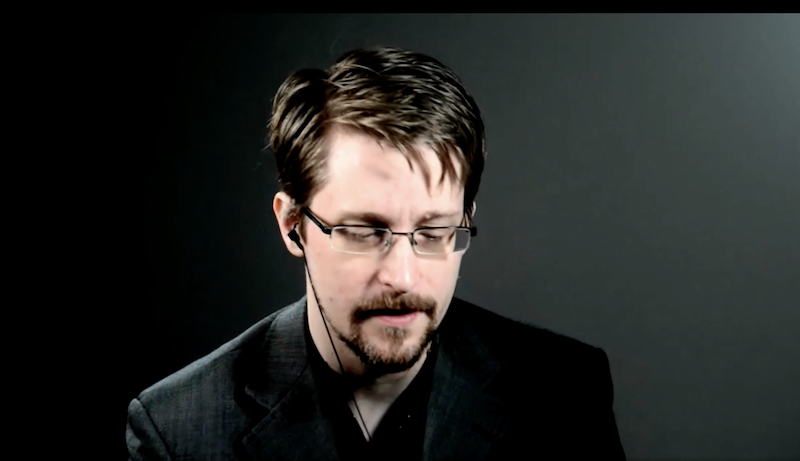Someone has to blow a whistle when the maneuvers of the deep state start violating the very rule of law that in fact created it. Such is the ethical power of rule of law that enables it to create the shadow actors within state acting against the very existence of it. And such is the power of rule of law that transform a gentle nerdy lad standing against the most powerful intelligence agencies on planet to righteously exposing their negative chronicles against its own people. Rule of law is supreme, let’s accept it. Those who don’t will someday but later it happens more devastating will it be for folks in denial. We all know those who don’t give a damn to the rule or law.
Snowden – as per his book “Permanent Record” – had to act upon his instincts by apparently “breaking the law” to stop its persistent violation. I’m no legal expert specifically in the matters of United States, however, I must acknowledge the fact that he has put his case with a justification assuming that the facts he has provided are exactly as happened.
He’s established himself being a natural choice for being an intel selection hunt as both of his parents were working for federal government in an area heavily populated by intelligence agencies. Computer was his first love and he was someone who’d love to test system’s limit by exploring the hacks and exploits it contained. An example is a directory exploit he mentioned in the book.
He has criticized the paranoia emerged in United States post 9/11 in the name of security and antiterrorism that gave rise to deep state, defeating the official trio of state pillars, i.e. Judiciary, Executive and Legislature. The intel agencies bent all three on its knees to ignore an illegitimate role they were about to play, and that all in the name of national security. Snowden has shed a light on weaknesses and flaws in US Military, the demotivation in there and the way it’s been exploited in the name of “system” and “chain of command”.
During his tenure as part of security agencies he has explained an era which was in fact a transition from legacy to modern spying system. Many weaknesses he has explained were genuine but natural. He didn’t have a conscious contradictory problem with any of the programs in there until and unless the agencies started deliberately violating the privacy. As per his justification and citing, privacy is part of the basic human rights, something federal agencies are violating with legal coverage at times and concealing at others by state pillars.
Eventually he narrates his story of evading the agency, communicating to the journalists and so on. Personally I loved the human part of his story, i.e. his relationship and the impact his actions put on it. Among the last few chapters is the one reflecting an abridged version of his girl friend’s diary pages. Regardless of any explanation from the other party, the fact is that she suffered. A happy ending though that the two are living together today.
One of the basic principles of information security is that anything can happen will happen. Knowing the fact being from Information Technology domain, plain text traffic, i.e. http can be sniffed and hence it was being as such, there’s no reason to reject the whole narration. This is the cost an individual is paying for the ease provided by technology, the disruption of one’s own privacy. We are more than ever we are encrypted from data communication point of view and yet transparent more than ever.
The case Snowden put forward was, say version one of privacy breach by government, exposed publicly. That was 2012. Same exposure of private lives abused for commercial purposes was observed recently in 2018 by Cambridge Analytica, then processing Facebook users’ private data to favor one political candidate.
Our online existence is cent percent virtual but was completely isolated from physical life till end of 90s. Starting 2000s, we’re living in an infused system where our digital identification doesn’t just compliments physical one rather supersedes sometimes to the later one. Just imagine your National Identification just evades away one fine morning. You’ll be stateless, illegal individual, just because you lack a digital existence in your country’s datacenter servers. The question of digital privacy therefore is critical today more than ever.

